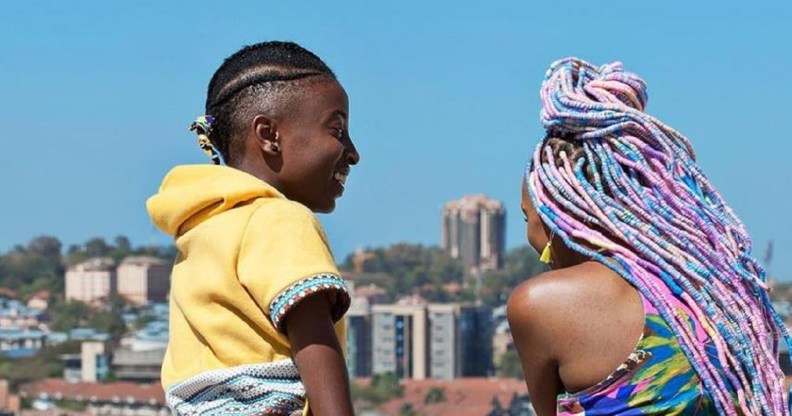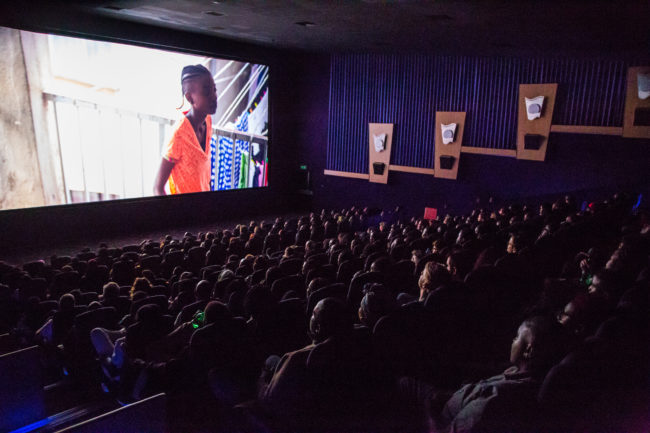Lesbian film Rafiki shatters box office records in Kenya despite ban for ‘promoting homosexuality’

The two main characters in Rafiki, Kena and Ziki (Rafiki)
Lesbian film Rafiki has shattered box office records in Kenya – after a government ban was lifted for one week only.
The lesbian love story from director Wanuri Kahiu debuted to international acclaim at this year’s Cannes Film Festival, but the film was banned in its home country after state censors took exception to the “homosexual” themes.
It was permitted to screen in the country for exactly one week in September, after a court ordered it should be permitted to meet the requirements for Oscars eligibility.
Under Academy Awards rules, submissions to the Best Foreign Language Film category “must be first released in the country submitting it… and be first publicly exhibited for at least seven consecutive days in a commercial motion picture theater.”
From the first night of the film’s release on September 23, cinemas in Nairobi were surprised by an influx of fans, who queued around the block to snap up tickets and get a chance to see Rafiki. Extra screenings were rapidly added and promoted by the film’s accounts on social media, as cinemas struggled to keep up with demand.

Huge crowds outside a screening at the Goethe Institut in Nairobi (Rafiki)
The film is now again banned in the country, following the end of the seven-day exemption – but in a final humiliation for state media censors, it was revealed that the film dominated the country’s box office in the period it was released.
Rafiki was the top performing film in Kenya for the week it was unbanned, edging out major Hollywood blockbusters The Nun and Night School.

The film played to packed out crowds (Rafiki)
The film smashed has through box office records in the country, becoming the second highest-grossing Kenyan film of all time – despite the one week of screenings being restricted to over-18s.
If it had been permitted to continue its run beyond the final legal screenings on September 29, Rafikii would almost certainly have been on track to become the highest-grossing Kenyan film of all time.

The film smashed has through box office records in the country (Rafiki)
The filmmakers are pursuing further court action to have the ban lifted permanently.
In a release to PinkNews, director Wanuri Kahiu said: “Thank you so much to all of you who came out and watched the film. Thank you for celebrating Kenyan film with us! We are so grateful. As we return to court to argue for freedom of expression, we carry you with us.”
Rafiki producer Steven Markovitz said: “The success of the theatrical release proves that there is a strong commercial market for Rafiki in Kenya.

Fans queue for tickets. (Rafiki)
“We intend to take this film to other African countries to continue to build the case that quality African films are commercially viable on our own continent. The film will be re-released in Kenya, when permanently unbanned.”
Lawyer Sofia Leteipan, who is representing Kahiu in the legal challenge, said: “The ongoing case provides an opportunity for the courts to give meaning, progressively interpret and to breathe life into the Constitutional guarantee of the right to freedom of expression, that includes artistic creativity.”
The film grossed more than $33,000 in its week of release, with more than 6,500 tickets sold.
The start of the film was greeted by raucous applause at screenings, while the crowds “laughed and booed” at the logo of the Kenya Film Classification Board—the body that suppressed its release.
The re-imposed ban makes it an offence to even own a copy of the film in the country.
Homosexuality is illegal in Kenya.

